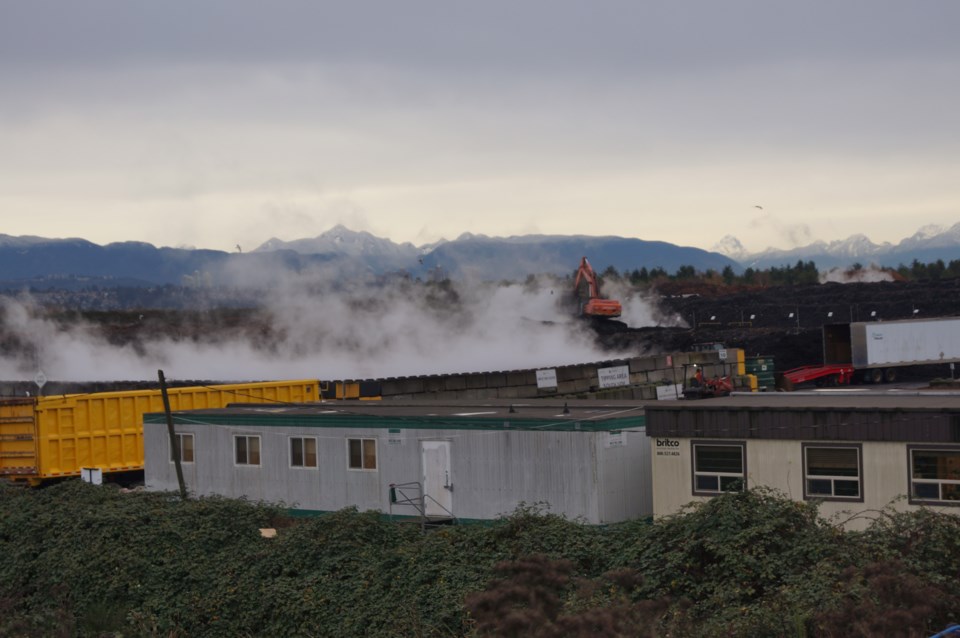A small battle waged by Harvest Power, in a war between Richmond residents and the beleaguered composter, has been lost.
The Environmental Appeal Board ruled last month that provincial environmental regulations must be upheld on federal land, on which Harvest Power’s compost and waste-to-energy facility is situated, in east Richmond.
Harvest Power, an American company, had argued to the board that its new air quality permit, issued in September 2016 by Metro Vancouver, ought not to be considered valid by the board, on jurisdictional grounds.
“Harvest challenged [Metro Vancouver’s] jurisdiction to regulate the discharge of air contaminants from the facility, given that the facility is located on federal land,” noted the board.
Following a lengthy review of the claim, the board decided otherwise, finding that it is possible for the company to abide by both federal and provincial regulations.
Notably, Metro Vancouver, the regional government body that issued the permit, was given authority by the Ministry of Environment to uphold provincial air quality regulations (under the Environmental Management Act).
While Harvest appealed its new permit late last year, the board simultaneously received 23 valid appeals of the permit, from residents.

“In general, they all appealed on the basis that Harvest is emitting unpleasant odours from the facility that interfere with their ability to enjoy breathing fresh air where they live, recreate, work, etc. Some of them also appealed on the basis that the odours from the facility adversely affect human health. The individual appellants request a variety of remedies, including that the permit be rescinded or varied,” noted the board in its decision on jurisdiction.
The jurisdictional issue was only raised after Isabel and Marc Brenzinger asked for the new permit to be stayed.
Another of those 23 appellants, Arnold Shuchat, contends Harvest Power’s jurisdictional legal battle was simply a stall tactic of the appeal process that deals with the bigger nuts and bolts of the problem — the facility’s odours, as well as the company’s claim, according to board documents, that odour (“sniff”) tests are “unreasonable, subjective, impracticable, unreliable, vague, punitive, and/or unsuitable for compliance and enforcement purposes.”
Shuchat now contends the real fight will begin, commencing this fall, by his estimation.
Meanwhile, odour complaints against Harvest Power have seen a significant drop since they peaked last November, with more than 1,042 complaints. Since Jan. 1 there have been a total of 755 complaints.



